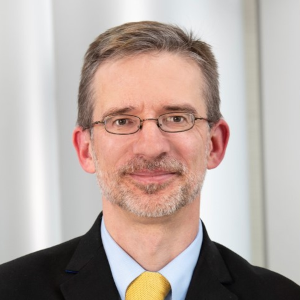Biography
Dr. Adrian Lee is the Pittsburgh Foundation Chair and Director of the Institute for Precision Medicine (IPM), a joint effort by UPMC and the University of Pittsburgh to move biomedical research into personalized well-being and clinical care. He is also Professor of Pharmacology & Chemical Biology and Human Genetics at UPMC Hillman Cancer Center. Dr. Lee received B.Sc. and Ph.D. degrees in England, and came to San Antonio, Texas for his postdoctoral studies. He was subsequently recruited to Baylor College of Medicine and to the University of Pittsburgh in 2010. The goal of Dr. Lee’s research laboratory is to translate basic cell and molecular research findings into the understanding and treatment of breast cancer. Dr Lee has published over 180 peer reviewed research articles. His laboratory is supported by funding from the NIH, Department of Defense, Susan G. Komen for the Cure, Breast Cancer Research Foundation, and other sources.
Session Abstract – PMWC 2022 Silicon Valley
Panel
Session Abstract – PMWC 2022 Silicon Valley
As targeted therapies have opened up precision medicine approaches to cancer treatment, oncologists and patients are increasingly moving to liquid biopsy as a front-line diagnostic approach to detection of actionable mutations to enable faster treatment decisions. Mutation detection in ctDNA has been shown to highly correlate to tissue biopsy for making treatment decisions, faster results and has the additional advantage of simplified specimen collection. Liquid biopsy represents an emerging paradigm shift in oncology practice and this session will discuss its promise and challenges from the Pharma, biotech and medical affairs perspectives.
Session Abstract – PMWC 2022 Silicon Valley
Sequencing technologies are continuously improving, making it easier to obtain more in-depth molecular information than ever before. Emerging single-cell multi-omics sequencing technologies allow the capture of multiple modalities from a cell, including its epigenome, transcriptome, epitranscriptome, and proteome. This allows research into the heterogeneity of many biological mechanisms, and insights into complex molecular mechanisms that underpin disease.
Sessions:
- 4th Generation Sequencing Technologies & Genome Mapping Systems
- Barrett Bready, Nabsys
- Alka Chaubey, Bionano Genomics
- Eli Glezer, Singular Genomics - Long-Read Sequencing Technologies
- Steve Turner, PacBio - Single Cell Genomics
- Michael Schnall-Levin, 10x Genomics - Spatial Transcriptomics
- Jason T. Gammack, Resolve Biosciences - Pathogen Identification
Session Chair: Charles Chiu, UCSF
- Philip Stevens, Noscendo - Metagenomics and Microbial Profiling
- Amrie Grammer, Ampel BioSolutions - ML/AI for Diagnosis & Prognosis
- Todd Dickinson, Arc Bio - Modern Technologies for Pathogen Identification + AI
Session Chair: Sivan Bercovici, Karius Dx - Novel SBS Methodology
- Josh Lauer, Ultima Genomics - Proteogenomics
- Nigel Beard, Encodia - Advances Proteomics - Stratifying Cardiovascular Risk to Decrease Cost of Care
Session Chair: Roy Smythe, SomaLogic
- Adrian Lee, UPMC
- Jamie Bauersmith, UPMC - Leveraging Immune System Diagnostics to Improve Disease Outcomes
Session Chair: Kathy Kamath, Serimmune, Inc
- Noah Nasser, Serimmune, Inc
- Sasha Tabachnikova, Yale - Evolving Alzheimer’s Disease Therapeutics with Neuro Diagnostic Therapies (PANEL)
Session Chair: Kevin Hrusovsky, Quanterix
- Charlotte Teunissen, Amsterdam UMC
- Henrik Zetterberg, University of Gothenburg
- Nicholas Ashton, University of Gothenburg - PMWC Showcase (NCI)
- Michael Cardone, Eutropics Pharmaceuticals
- Robert Meltzer, Fluent BioSciences
- Cynthia Taylor Lawley, Olink Proteomics
- Niro Ramachandran, Akoya Biosciences
- Asim Siddiqui, Seer











